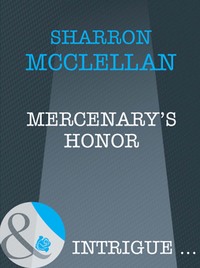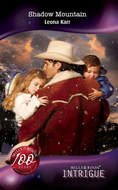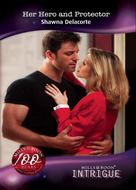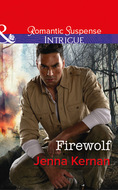Książki nie można pobrać jako pliku, ale można ją czytać w naszej aplikacji lub online na stronie.
Czytaj książkę: «Mercenary's Honor»
This is the worst idea ever, a voice in the back of her head whispered.
She ignored the voice. There was no time for second-guessing or doubt or making another choice. There was only trust that Angel would get her out of this mess with her skin intact.
He’d done it so far.
He gunned the bike, and she clutched at him as they roared through the open doorway. Behind them, men yelled and gunfire sounded over their shouts. Fiona flinched, expecting to feel a bullet in the back with each passing heartbeat. She glued herself to Angel until there wasn’t even air between them and prayed their luck would last.
“Hang on!” he shouted.
As if she needed to be told.
Dear Reader,
I am a bit of a traveler. In fact, I have a hard time staying put in one geographical region for more than a year at a time. For me, travel is a way to learn about other cultures, ideas, world events and more. It also influences me as a writer. Archaeological sites, places, people and even tension in the air are fodder for my imagination.
The seed for Mercenary’s Honor came from my time in Oaxaca, Mexico. In 2006, I wanted to get away. I picked Mexico because my Uncle Jim lives there, and I thought it would be nice to have someone close on foreign soil. So off I went. Just in time for the riots.
Yes—riots.
I touched down just as teachers marched on the city (it’s how they get their raise each year), and then the Mexican presidential election began. I saw burning buses, got caught up in a peaceful demonstration—and managed to cross a metal barrier just before a non-peaceful demonstration broke out.
A few months into this chaos, a reporter was killed. A stray bullet, I believe. I began to think about reporters who typically go into areas in conflict. How do they do it? What if they see something they shouldn’t—what would they do?
Thus, Mercenary’s Honor was born. I hope you enjoy the book, and if you look, I think you’ll see a little bit of my adventures in the pages.
—Sharron
Mercenary’s Honor
Sharron McClellan

MILLS & BOON
Before you start reading, why not sign up?
Thank you for downloading this Mills & Boon book. If you want to hear about exclusive discounts, special offers and competitions, sign up to our email newsletter today!
Or simply visit
Mills & Boon emails are completely free to receive and you can unsubscribe at any time via the link in any email we send you.
SHARRON MCCLELLAN
began writing short stories in high school but became sidetracked from her calling when she moved to Alaska to study archaeology. For years, she traveled across the United States as a field archaeologist specializing in burials and human physiology. Between archaeological contracts, she decided to take up the pen again. She completed her first manuscript two years later, and it was, she says, “A disaster. I knew as much about the craft of writing as Indiana Jones would know about applying makeup.” It was then that she discovered Romance Writers of America and began serious study of her trade. Three years later in 2002, she sold her first novel, a fantasy romance. Sharron now blends her archaeological experience with her love of fiction as a writer for the Silhouette Romantic Suspense line. To learn more, visit her at www.sharronmcclellan.com. She loves to hear from her readers.
To my mom and dad. For instilling a love of reading
in me and encouraging my writing. I appreciate
the time, the help, but mostly, I appreciate your belief
that I would be a success.
Contents
Acknowledgments
Chapter 1
Chapter 2
Chapter 3
Chapter 4
Chapter 5
Chapter 6
Chapter 7
Chapter 8
Chapter 9
Chapter 10
Chapter 11
Chapter 12
Chapter 13
Chapter 14
Chapter 15
Chapter 16
ACKNOWLEDGMENTS
Many thanks to James McClellan (Uncle Jim!) and
Antonio Reyes of Casa Adobe B&B (Oaxaca, Mexico)
for the Spanish translations.
Chapter 1
“He won’t kill her,” Fiona whispered, adjusting the dark scarf that covered her bright blond hair. “He can’t.”
It was early morning with the sun barely over the horizon. She and her cameraman, Anthony Torres, lay flat on a fourth-floor balcony with only blooming bougainvillea and an ancient black wrought-iron railing for cover.
Peeking through the cover of leaves, thorns and purple blossoms, they watched the courtyard below where Ramon Montoya, head of Colombian National Security, was interrogating Maria Salvador. According to rumor, she was one of the leaders of Revolucionarios Armados de Colombia—RADEC—a rebel group dedicated to freeing Colombia from the iron grip of the current regime—of which Montoya was the worst.
“It’s not like it would be his first execution.” Tony kept the small camera focused on the scene.
“Really?”
“Yeah, really,” Tony said, not taking his eyes off the scene below. “But he usually doesn’t kill women. Not often.”
Small comfort, Fiona thought, stifling a yawn.
“Do not tell me you’re bored,” Tony said.
“Not a chance,” Fiona whispered. “But I could use a cup of espresso.” They’d been hitting the sketchier bars for the past few nights searching for the story, the one that would make them both famous. Then, last evening, their diligence plus a fistful of American dollars had brought them here.
Fiona was thrilled to have the chance to report something worthwhile, but she would have been more thrilled if she’d had a few hours of sleep.
Beneath them, Montoya backhanded Maria across the face, the sound echoing against the brick enclosure. Maria fell to the ground in a small heap, her long black hair spreading across the broken pavement.
A shot of adrenaline surged through Fiona, dissipating her need for rest. “We have to stop him,” Fiona whispered even as the reporter in her told her to stay put. To watch with dispassion and do her job.
“With what? Harsh words?”
Fiona rolled her eyes. “How about calling for help?”
“Call who? The police?” Tony asked with a hint of sarcasm.
She frowned, since the men below them were in charge of the police. “Someone. Anyone,” she said with a scowl.
“See if my cell works,” Tony said, rolling to his side a few inches but never losing the shot. “Front right pocket.”
Fiona dug into his jeans pocket and wrapped her fingers around the phone.
“Farther down,” he whispered with a wicked grin. “And firmer.”
“Pervert.” She pulled the cell out and flipped it open. It blinked at her, showing no coverage. Sometimes, she hated Third World countries. Granted, they had all the best stories, but at times like this she missed the United States and the convenience of a cell tower on every corner.
She shoved the phone back into Tony’s pocket. “No signal.”
“Not a sur—”
Maria screamed, cutting off Anthony. Fiona froze. Squinting in the sunlight, she watched as Montoya pulled the woman to her feet by her hair.
Bastard.
“¿Dónde están, Maria?” Montoya screamed the question—where are they—loud enough that Fiona was sure the neighboring country heard his shout. Yet none of the curtains in the windows surrounding the courtyard so much as fluttered. People didn’t want to get involved, and she couldn’t blame them. When the men in charge were the bad guys, there was no one to turn to.
That was why she was here, she reminded herself. To uncover the truth and help make changes in a country run by a government that was as corrupt as the Mafia and twice as dangerous. If she won an Emmy, or perhaps a Pulitzer, that was icing on the cake and nothing more.
Or so she told herself, even as she envisioned herself giving an acceptance speech.
The air in the courtyard tightened, became electric with tension. Montoya’s men straightened.
Something was about to happen, she realized. Fiona pushed thoughts of a Pulitzer to the back of her mind and strained to listen.
Maria said something, but her husky voice carried no farther than Montoya’s ears. He drew closer. She spat on him. He wiped her spit off his cheek.
“Good for her,” Fiona whispered, but she hoped that Maria’s small act of defiance wouldn’t cost her.
“I’m not so sure,” Tony replied. He tweaked the directional microphone and adjusted his earpiece. It wasn’t large, but Fiona knew it was the most powerful sound device on the market and it picked up sounds that she couldn’t hear.
“What’s he saying?” she asked.
“That if she tells him where the rebels are he will make sure they are imprisoned but not killed.”
“She doesn’t buy that, does she?”
Tony hesitated. “No. She’s still denying any involvement.”
“What do you think?” Fiona asked, wondering if the woman was as innocent as she claimed. Not that it mattered. No one should be subjected to such brutality by the hands of those who were sworn to protect the public. “Is she uninvolved?”
“No,” Tony whispered. “According to my contacts, she’s at the top of that particular food chain.”
Fiona’s blood chilled. If Tony was so certain, it was a sure bet that Montoya was, as well. “Damn it.”
“Exactly, but as long as she doesn’t confess to anything, I think she’ll be fine,” Tony said.
Montoya hit Maria again, the force of the blow making her take a step back.
Fiona winced, wishing she was as sure as her cameraman. “I hope you’re right,” she whispered. “Because in a few seconds, I am going to have to say or do something.”
“Hold your horses, Don Quixote,” Tony cautioned. “I think something’s happening.” He adjusted the camera and zoomed in on the scene.
Below them, Montoya pushed Maria away and pointed toward a door on the far side of the courtyard. “Is he letting her go?” Fiona’s heart pounded with fear and anticipation.
“It looks that way,” Tony said, but his tone suggested the same lack of sureness that pulsed through Fiona.
Maria adjusted her tiered skirt, dusted the leaves from her hair and headed for the doorway with her head held high. The men moved aside to let her pass.
Fiona’s pounding heart slowed, and she breathed a sigh of relief, letting her head drop to her hands. “Thank God,” she whispered. Maria was going to be all right. They had the story, and she’d be able to sleep at night.
A barrage of gunshots sounded from the courtyard below, and Fiona snapped to attention, swallowing her shout of horror.
Through the bougainvillea, she saw Maria on the pavement. Bullet holes riddled her lithe body. Blood spattered the pavement around her.
Even as Fiona gaped in horror, Tony jumped to his feet. “No!”
Below, Montoya whirled, and even at forty feet, Fiona saw his eyes widen in surprise at the cameraman’s appearance. In less time than it took her to realize what was happening, Montoya raised his gun and fired. Tony fell backward, striking the wall behind them as blood bloomed on his chest. His camera clattered to the tiled floor, still filming.
For a heartbeat, Fiona stared at him, stunned. Not sure whether he was alive or dead and not sure what to do in either case.
“Fiona,” Tony whispered, his voice thick with pain.
His voice brought her back to reality. “Oh, my God, we’ve got to get you out of here.”
He coughed and blood stained his lips. “Not going anywhere.” Tony grabbed for the camera, missing. “Run. Take the film to Angel.”
“Angel?” Hands shaking, Fiona moved the camera aside to check the wound. The entrance wasn’t bad, she realized, but blood poured from beneath him from an exit wound she suspected was monstrous.
Tony grabbed her wrist. “Get to Angel. Mercenary. Friend.” He strained to talk, his words clipped and tight. “He can protect you. The film.”
Film? Who cared? “Screw the film.” Fiona shook her head. “What the hell were you thinking? I have to get you to a doctor.” Remaining low and out of sight, she pressed one hand to his chest and another against his back. The feel of his blood, warm and sticky on her palms, made her nauseous.
Tony’s eyelids fluttered and a whimper escaped his lips. “Stop,” he whispered through clenched teeth. “Please. Stop.”
“Oh, God. Oh, God. Oh, God,” Fiona muttered. They’d hopped across rooftops to get to the building. How was she going to get him out if he couldn’t walk?
“Angel. Get to Angel,” Tony insisted.
“No.” She pressed harder, but the blood refused to stop.
“Leave me or die.”
“Fine. I’ll go,” she agreed, even though she did not intend to leave him alone. “Stubborn, butt-headed drama queen.”
Though he labored to breathe, Tony managed a weak smile. “Not me. You,” he said, his voice faint.
With the back of her hand, Fiona wiped away tears she’d been unaware of until they’d blurred her vision. Maybe if she found this Angel person, she could convince him to help her with Tony. “Where do I find him?”
“Tierra Roja.”
The bar on the zocalo? It wasn’t a surprise. What better place to find a mercenary? “I’ll hurry,” she said.
“Good.” Tony touched her hand, his grip weak. “This makes me miss dog shows.”
She twined her fingers through his. When she’d met Tony a few months ago, she was covering a dog show in Los Angeles, and he was her new cameraman. They’d bonded over the fact that they both thought their talents were wasted. Then he’d suggested they come to Colombia, his country, and find a story, make things happen instead of playing the game.
Some story.
“Me, too,” she replied. “Though I could live without the constant leg-humping.”
Tony gave a feeble chuckle. “That was my favorite part.”
Shouting in the courtyard caught her attention. “Be right back,” Fiona said. Letting go of his hand, she crawled back to the edge of the balcony and peered over. Montoya was yelling. Pointing.
Seconds later, the sound of a door splintering made her tremble. Montoya’s men were in the building. They’d be on her in a few minutes. She’d have to hide Tony until she could come back with help. She crawled back to him. “I’ll be back soon,” she promised. “With Angel. I’m going to get you out of here.”
She froze.
Tony stared at the sky. His chest no longer rose and fell. She swallowed back a cry of despair. “Tony?”
Nothing. She touched him. “Anthony?” He was dead. For a moment, she stared at the corpse, oblivious to anything but his sightless eyes. Then shouts reached her ears.
Montoya’s men.
Panic roared through her body. She clenched her hands into tight fists. Focus, she told herself. Focus, Fiona. Focus or die.
Taking a deep, controlled breath, she forced the rising panic to the back of her mind then exhaled. Her pulse slowed. She unclenched her fists.
Time to run.
Wiping the blood off her palms and onto her denim-covered thighs, she closed Tony’s eyes with a shaky hand, popped the microtape out of the camera and stuck it in the front pocket of her jeans.
Retracing the route she and Tony had taken to break in to the ancient apartment complex, she hunched over to keep her profile low and hurried through the French doors and into the empty hotel room. The sound of feet echoed in the stairwell. The men were almost at her floor.
Although it was risky to enter the open hallway, Fiona hurried across the few feet of the narrow passage and into the opposite room, easing the door shut behind her.
Out in the hallway, the men reached the fourth-floor landing.
Fiona ran for the window and swung both feet over the ledge. Dropping to the roof a few feet below her, she landed on her toes for silence. Even though she stood outside and with the door closed, the soldier’s speech carried through the thin walls. She froze, listening.
“Esta vacío,” someone shouted.
It’s empty. They’d found the camera and checked.
“Encuentre a su socio.”
Find his partner. They knew about her. They knew. She put her hand over her mouth to keep from throwing up.
Angel Castillo stared at the shot of mescal in front of him, debating if it was too soon in the day to have a drink. Wasn’t it Alan Jackson who sang that it was “five o’clock somewhere”?
He picked up the shot glass and turned it around, letting the sunlight filter through the pale yellow liquid.
“Isn’t it a little early for that?” Juan asked as he wiped down the top of the bar.
“Then why did you serve me?”
“Because you tip well.”
Angel shrugged. His mother had been a waitress, working at a diner, and the nights she came home with little more than a few crumpled bills outnumbered the nights she came home with bulging pockets.
He knew the food business was difficult. Even more so when it was in a crap-hole like Bogotá, Colombia.
He set the glass down, and Juan slid a cup of coffee in front of him. “Try this.”
“I’ve tasted your coffee. It’s more lethal than any bullet.”
“Yeah?” Juan laughed. “At least you’ll be awake to hear the shot.”
Angel shrugged and took a sip. The brew was thick. Black. And possibly illegal in some countries. If not, it should be.
“Bad night?” Juan asked as he put away glasses from last night’s patrons, a combination of locals and tourists that never failed to amuse.
Angel glanced at Juan over the rim of the mug. A few weeks ago, when he’d come in at two in the morning, bleary-eyed and almost incoherent from lack of sleep, he’d told the bartender about the nightmares.
Mostly, Angel didn’t remember them. He wasn’t sure if that made them better or worse. What he did remember were the emotions they heaped on him. Anger. Remorse. The sense of helplessness.
“The dreams?” Juan pressed.
Angel raised a brow. This was the last time he confided in a bartender.
Juan shrugged. “Hey, if you need to talk, let me know.”
“You going to ask me about my feelings next?” Angel asked. The corners of his mouth turned up a notch to show there was jest beneath the words. “Should we bond? Perhaps do each other’s makeup, eat ice cream, and watch a Hugh Grant movie?”
Juan chuckled. “Kind of girlie to ask you if you want to talk, huh?”
Angel held his index and thumb an inch apart. “A notch.”
“Blame it on Maria,” Juan said. “She says we all should be more attuned to those around us.”
Angel chuckled and sipped the coffee. Juan was smitten with the freedom fighter. Hell, everyone was smitten with her, and it wasn’t just her beauty. It was true that her long wavy hair, dusky skin, and green eyes captured the attention of men, but her passion held it. Passion for her people. For her country. For the truth.
Maria was a force of nature, and while her enthusiasm for the RADEC cause wasn’t something he shared, he admired her for it. She inspired not just him but thousands of people.
He pushed the shot of mescal away. “I don’t think I’ll need this today.”
Fiona crouched in an alley, watching the doorway of Tierra Roja and surprised to see movement inside before noon. It was hard to believe anyone would drink at ten in the morning, but this was Colombia. Sometimes, the only way to get through the day was with the edges of life a little blurred.
She looked up and down the street. Cars. People. Men with large guns. It was a day like any other in Bogotá.
Running her hands over her bloodstained jeans, she wished she could change clothes, but she didn’t dare go back to her hotel. Montoya might not know who Anthony was—or his partner—but he’d figure it out. With her luck, sooner rather than later.
She stood, knees shaking. “Come on, Fiona,” she whispered to herself. “Just get across the street, and you’ll be safe.”
Trying to appear nonchalant, she waited until the road was clear of traffic and hurried across. Without breaking pace, she pushed her way into the bar then slammed the door behind her. Taking a deep breath, she leaned against the scarred wooden slab.
“Are you well, señorita?” the bartender asked.
She glanced around the room. Other than the bartender, there was one other patron. Dressed in jeans, a black T-shirt and black boots, he had a cup of coffee and a shot of something in front of him.
He sipped the coffee, not showing any awareness she’d entered.
Great, a drunk, she thought, heading toward the far end of the bar. However, as she drew closer, she scrutinized him with a reporter’s observational skills and had to admit he looked good for a drunk. Big. Muscled and in shape. Black hair clipped neat and short, but not military tight. A professional of some sort.
Angel perhaps? But he could just as easily be one of Montoya’s men. She stopped short, then realized she’d have to take a chance either way. She continued across the floor and leaned against the bar a few feet away. Closer still, she noticed there were circles beneath the man’s eyes, and he drank the coffee as if it were the one thing keeping him alive.
He had to be Angel. He looked like the kind of man who might kill—or protect—for cash.
She shifted toward him. “Excuse me?”
He didn’t acknowledge her. “Excuse me?” she said again, raising her voice and taking another step in his direction. “Angel?” she whispered, taking the chance he was the mercenary.
He sipped his coffee, showing no sign of recognition of the name. The pit in her stomach deepened.
“We are not open yet, señorita,” the bartender said as he continued to hand-wash the bar glasses.
“Oh.” She turned away from the dark man. “I don’t want a drink.” She went to the bartender. They were supposed to know everything. “I need a man,” she whispered
He grinned. “Who do you want?”
Judging by the goofy expression on his tanned face, he thought she meant sex. Now was not the time for jokes. A vision of Anthony flashed across her eyes.
For what seemed like the millionth time since she ran away, she pushed the bloody image out of her mind and blinked back tears. Later, when the film was safe, she’d mourn. “Not like that. I need a specific man. He’s called Angel. I was told he came here. A lot.”
“Angel? I don’t know him.” The bartender shook his head, and his eyes remained on her, not sliding toward the dark man. Not even for a second.
Fiona’s heart dropped. “I was told he came here,” she insisted. Almost as if she floated outside her body, she heard her voice grow higher, more frightened and shaky. She didn’t care. “I was told.”
“You were told wrong,” the bartender said, disentangling her hands from his shirt. “Let me get you a cup of coffee.”
She hadn’t realized she’d grabbed him. Fiona stuffed her hands into her pockets. Her fingertips touched Tony’s footage, and she yanked that hand back out.
Taking a deep breath, she sat on a barstool and let her head drop to the wooden bar. This was not going well. Not at all.
“Here, you need this more than me,” a deep voice said.
She raised her head in time to see the dark man slide his shot glass toward her. She stopped it before it sailed over the end of the bar. “It’s not even noon.”
“Suit yourself.” He went back to his coffee.
She eyed the liquid. Though it was pale yellow in color, it still looked like something someone had made in their bathtub. And she was not much of a drinker, in any case. Still, she picked it up.
Tony flashed through her thoughts. His quick wit. His laugh. His bloody death. “Screw it,” she whispered. Tipping her head back, she downed the shot.
Mescal, she realized as it burned a path down her throat. She put her hand over her mouth, a coughing fit doubling her over.
“Drink this.” The bartender’s voice cut through the hacking sound of her cough. After she caught her breath, she noticed the cup of coffee, with milk and sugar on the side, on the bar in front of her.
“Thanks,” she said, adding the milk.
He patted her hands. “I’ll get you something to eat.”
“I’m not hungry,” she said, her voice strangled as she fought back tears.
His eyes widened. “I insist,” he said, disappearing into a back room.
It was the tears, Fiona thought as the door swung shut. It didn’t matter the nationality, men freaked when a woman cried.
Fiona took a deep breath, shut her eyes, and assessed the situation. She was on the run. It was a matter of hours, at best, before Montoya figured out who she was. She needed Angel. If she couldn’t find him, she’d have to make her own way out of the country. For now, she’d assume the worst.
That she was on her own.
Okay. What do you do? she asked herself.
First, a disguise, she decided. She needed to hide herself. She touched the scarf that covered her head and realized it had slipped. She tried to fix it, but her shaking hands refused to cooperate. Frustrated, she yanked it off, wishing her hair was anything but blond. Dye would help, but there was no way she could conceal her fair skin and blue eyes. Hell, her height alone, just shy of six feet, made her an object of curiosity amongst the people in South America.
“Why do you want Angel?” the dark man asked, interrupting her thoughts.
Startled, Fiona spilled her coffee. The hot liquid spread across the bar and dripped onto her lap, making her hiss in pain. Great. “I was told he could help me,” she said as she grabbed a handful of cocktail napkins to clean the mess.
“Help with what?” He turned to face her.
The dark circles beneath his eyes drew her initial attention, and she wondered if he ever slept. Her eyes slipped upward, past the smudges to his clear hazel eyes. He held her gaze, then his attention slid down her body, taking in everything from her head to her feet, including her bloody jeans. She let the wad of napkins drop to her lap, but no amount of coverage could hide the dark stains that soaked her from thigh to knee. Touching her hair, she brought his attention back to her face and away from her clothes. “I’ll only talk to him,” she replied, her tone aloof. “So unless you can tell me where he is, I can’t say a word.”
The man shrugged. “I might know. He doesn’t like to be bothered. What happened? Domestic problem?” His eyes went to her jeans again.
Domestic problem? Fiona swallowed back a hysterical giggle. “An accident.”
“That’s a lot of blood for an accident,” he said. Rising from the barstool, he walked toward her.
He was tall, just over six feet three inches, and broad. Like a linebacker.
And as intimidating as one of Montoya’s enforcers.
“Are you okay?” he asked.
She nodded. “It’s not mine.”
“Don’t cry,” he said.
“I’m not,” she said, then realized she was doing exactly that. Tears slid down her cheeks, dripping onto the napkins covering her lap. She wiped her face with the back of her hand. “I’m sorry, it’s just—” She stopped herself. What was she going to say?
That she’d watched a man, a friend, die?
Her eyes felt hot. Itchy. She willed the dark man to stop staring at her.
But he refused to turn away. “Tell me why you want Angel, and I’ll see if I can find him.”
She pressed her hand against the dark man’s chest to steady herself. His heart beat strong against her palm. Warm. Alive.
The burden, the pain, was too great to bear any longer. She had to trust someone. Just a little. “I can’t tell you, but if you find Angel, tell him that Anthony Torres sent me.”
“Tony?” Recognition flashed across his eyes.
“You know him?”
The man nodded. For the third time, his eyes slid to her clothes. “Is Tony okay?”
Fiona tried to answer, but all that came out was a stuttered gasp as she tried to breathe.
It seemed to be enough of an explanation for the stranger. His eyes darkened, and she prayed he didn’t direct his anger in her direction. Because if he did, she was dead. “Juan,” he barked, “bring me another shot.”
“No,” came the muffled answer from behind the door.
The dark man leaned over the bar and grabbed the bottle of mescal.
Fiona shook her head. “I have to stay sober. They’re after me.” She clamped her hand over her mouth at the slip.
“Who? The men who killed Tony?”
Her head jerked up, and fear roared through her. He knew. Had she misjudged the man? Was he one of them? One of Montoya’s men? She pushed away from him and stumbled from the chair, backing up toward the front door. “What do you mean? Who are you?” Her back met the painted cinderblock wall.
The man came toward her. Dark. Menacing. She couldn’t move, no matter how much adrenaline pulsed through her blood. He reached for her, and she shut her eyes.
He pressed something into her hand.
She opened her eyes. Another shot. It was half full this time.
“Drink it,” he insisted, taking her elbow and leading her back to the bar. “Then tell me what happened.”
She’d said too much already. Given away too much. “I can’t. I have to talk to Angel.”
“You are.”
Her breath caught in her throat. This was Angel? “Why didn’t you say something?”
He didn’t shrug. Nod. Or offer an explanation. But his expression softened. Angel leaned closer, and she saw a glimmer of something in his eyes.
Compassion. And it made her want to cry all over again.
“Tell me who killed Tony,” he said.
Fiona rolled the shot between her palms. “Who killed him?” Montoya had pulled the trigger. Fired the bullet.
But she’d put Tony in danger. Pushed him. Talked him into doing something stupid. She straightened her shoulders. “For all practical purposes, it might as well have been me.”
Darmowy fragment się skończył.








